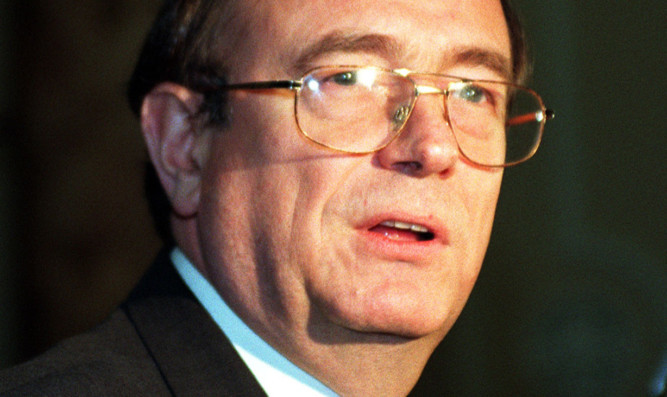Lord Sewel will not face charges over allegations of drug-related offences after the Metropolitan Police said there was “insufficient evidence to proceed” with its investigation.
The scandal-hit peer resigned from the House of Lords after coming under intense pressure over footage of him allegedly taking cocaine with two prostitutes.
The former Labour minister – who was the first peer to stand down in disgrace following new rules introduced last year allowing resignations from the Upper House – apologised for the “pain and embarrassment” caused by the drugs and sex scandal, exposed in the Sun on Sunday.
Scotland Yard said in a statement: “The Met launched a criminal inquiry intoallegations of drug-related offences involving a member of the House of Lords onMonday, 27 July.
“The investigation, led by officers from the Special Enquiry Team of the Homicide and Major Crime Command, has now concluded.
“Following a review of all the material, including a forensic examination of an address in central London, there is insufficient evidence to proceed with this investigation and the matter is now closed.”
The married 69-year-old quit his £84,500-a-year role as deputy speaker of the Lords and chairman of the Lords Privileges and Conduct Committee, then quit Parliament altogether.
In a statement to parliamentary officials announcing his resignation, Lord Sewel said: “I hope my decision will limit and help repair the damage I have done to an institution I hold dear … I want to apologise for the pain and embarrassment I have caused.”
Prime Minister David Cameron welcomed his decision to “absent himself” but played down the prospect of further reform of the Second Chamber, saying there was “no point in trying that route again” after the failure of proposals under the coalition.
The scandal fuelled criticisms the unelected House of Lords is out of touch and should be scrapped.
The chamber has swollen in size in recent years, and there are currently 783 members, making it the largest legislative assembly outside China.
